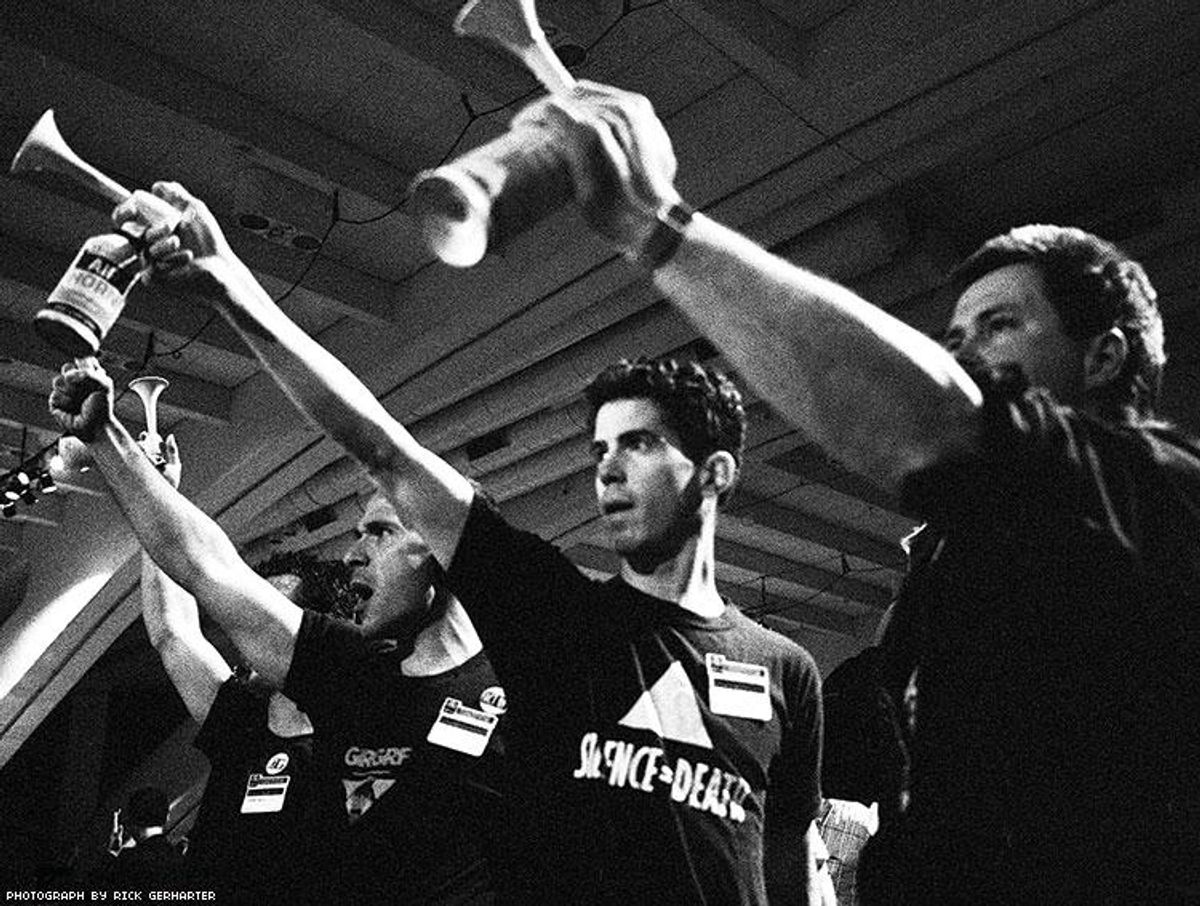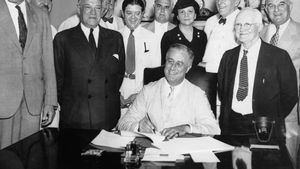In person, David France is mild and avuncular, sweet-faced, soft-spoken, and quick to chuckle. The only sign of his leftist politics is the pop of fuchsia pinned to his denim jacket -- an old-school activist button that reads "Justice for Marsha" (a reference to Marsha "Pay It No Mind" Johnson, the trans activist who died in 1992, and one of the subjects of France's next documentary, Sylvia & Marsha). It's early fall and we're discussing How to Survive a Plague -- not the Academy Award-nominated film France made in 2012, but the book France always intended to write, which was just published by Knopf.
"I wrote a proposal in 2008 or 2009, and nobody was interested," he says, shrugging his shoulders. It was a bad time for the economy in general, and publishing in specific, but more than that, France says, "they were convinced that everybody knew the story of AIDS, that it had been told."
The evidence they kept referencing was Randy Shilts's And the Band Played On, an account that ended in 1985, two years before ACT UP, AZT, the Western blot test, or the AIDS Quilt existed; five years before the Ryan White Care Act was signed into law by President George H.W. Bush; and 11 years before antiretroviral drugs transformed the crisis.
During his research for the proposal, however, France came across a wealth of video produced by activists in the '80s and early '90s. The AIDS movement was one of the first to grasp the radical possibilities of the handheld camcorder (as Alexandra Juhasz documented in her book AIDS TV), and France used that footage to circumvent naysaying publishers and create the film version of How to Survive a Plague.
Since that time, interest in examining the history of AIDS has exploded, and France found people suddenly eager for the story they had summarily dismissed just a few years before.
The book follows the same path as the film, tracking the activist and medical responses to the crisis, mostly in New York City, where France was a journalist covering AIDS and anti-LGBT violence.
In the case of AIDS, direct action and medical advancement, are inextricably linked, and the history presented here is fascinating and complex. "I was at all the ACT UP meetings as a reporter, so I was theoretically standing back and trying to get the bigger picture," France recalls. "But it wasn't until I spent years going back over the documents that I saw that it was directly impacting the way science was being conducted."
The book opens in 2013 with the memorial service of Spencer Cox, a long-term AIDS activist whose life spun out of control after ACT UP lost steam in the late '90s -- suggesting that all the treatment and drug activism in the world is not enough if it doesn't come with a concomitant focus on reducing AIDS hysteria, rejecting sex- and drug-shaming, listening to and funding care and community for people with AIDS, and a host of other interventions that aren't necessarily medically based.
As thorough as How to Survive a Plague is, it cannot capture the entire history of the crisis, and it focuses on an element of political response that is already somewhat known: medical activism primarily performed by urban gay white men. (This is a critique that was also leveled against the film.)
Yet at more than 600 pages of text and notes, the book is the unabridged text to the film's CliffsNotes, providing important context, following more people, and quoting an incredible number of primary sources. (It also uses video -- many of the men profiled in this book recorded their phone calls and meetings as a matter of habit, creating a document that will be useful to historians for generations to come.)
This contextualizing will be shocking to some readers, who don't know (or have forgotten) the intensity of the homophobia that was commonplace during the early years of the crisis. It paints a picture of a broken health care system and a blind government, riddled with petty egos, bias, and neglect, in which a few "good eggs" were unable to create change without the massive, multidirectional activist response of people with AIDS (and their allies) -- a story that feels eerily parallel to the current attempts by the Black Lives Matter movement to bring justice to our mass incarceration system.
Anyone interested in social, medical, or LGBT history will value How to Survive a Plague, but for France the story of the community's response to AIDS "offers lessons for everybody about how to effect social change through grassroots activism."
Purchase How to Survive a Plague here.
Like what you see here? Subscribe and be the first to receive the latest issue of Out. Subscribe to print here and receive a complimentary digital subscription.

























































































